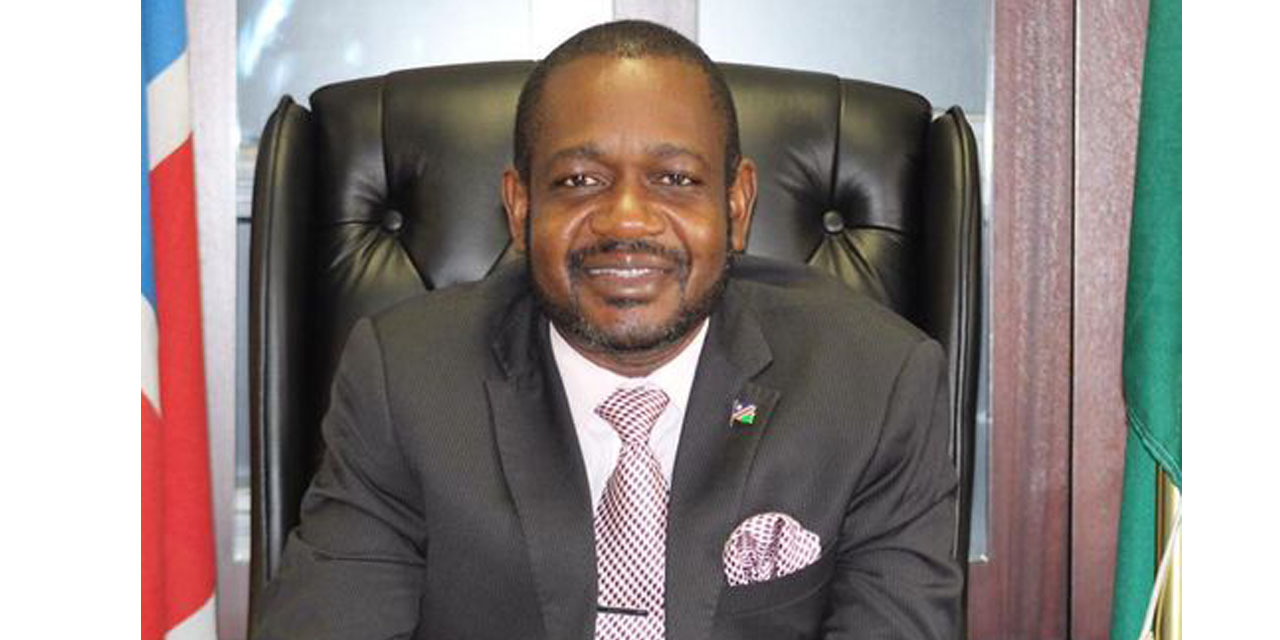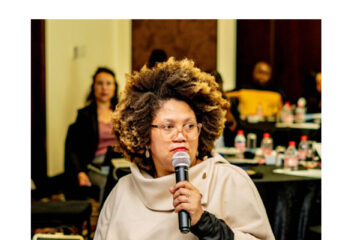Stefanus Nashama
The Minister of Information and Communication Technology, Peya Mushelenga, is under fire for criticizing journalists and labeling them “lazy”, at a meeting hosted on Wednesday with local News Editors.
At the said meeting, Mushelenga expressed concern with what he termed “lazy journalists,” urging them to do their work with the utmost professionalism. He further said in contrast with the past, journalists are too lazy to take notes when someone is speaking at an event, adding that they will rather request a copy of the speech from the speaker.
Mushelenga stood his ground in an interview with the Windhoek Observer yesterday, stating that journalists are too lazy to investigate and get primary information as part of their work.
“Some journalists do not even go into the field and carry out their tasks from there,” he added.
However, the Minister explained that there are some journalists who do their work professionally and they should be applauded for the great job they are doing.
Mushelenga’s remarks have raised concern among journalists on the Ministry’s official media group, who expressed that the Minister should also consider discussing journalists’ working conditions and the poor wages paid to them.
“If I were Minister Mushelenga, I would urge all editors, media house owners news consumers, to look at the allowances paid to journalists, and some media houses do not even pay on time,” a journalist commented.
“Journalists are forced into laziness by their working conditions and poor salaries they get paid by their media companies. Peanuts and slave wages is the most pressing issue for lazy journalists. The Minister should engage media companies on this,” another journalist said.
Mushelenga said that journalists are losing their professionalism by doing public Relations (PR) work.
“Journalists work for the public. They are the eyes and ears of the public. They should not rely on or base their work on speeches. They should do research, investigate and get more information on their own. For example, if the budget is presented in Parliament, journalists should be able to take notes and write news without requesting a speech. That is what I mean by lazy journalists,” the Minister explained.
Mushelenga said that there is nothing wrong with journalists recording and taking videos of a source without writing on a hard paper as that is modern technological development.
He said journalists should have their eyes and ears on the ground to carry out their work professionally.
Mushelenga urged journalists to remember what they were taught in school and stick to professionalism instead of requesting speeches and press releases.
Meanwhile, the Namibia Media Professionals Union (NAMPU) Secretary General, Sakeus Iikela yesterday said it is not a secret that journalists in Namibia are underpaid.
Iikela explained that although NAMPU exists to fight and advocate for the interest of journalists’ bread and butter issues and ensure better working conditions for journalists it currently cannot agree to negotiate journalists’ salaries because it is yet to acquire recognition from the Labour Commisioner.
“We are in the process of registering the Union with the Labour Commisioner, and once it is registered, we will address all those issues that appeared since the Union was created to address such issues that may discourage journalists from carrying out their work professionally,” he stated.
Iikela added that he has not observed any laziness, adding that the quality of journalism is good.
“I do not know how the Minister wants journalists to carry out their work, but as a Union, we observe them doing well,” he said.
Iikela urged media house owners to respect the work of journalists and improve the salaries and working conditions to avoid such observations by the Minister.
Mushelenga on his part said that he is responsible for the Ministry he leads and cannot discuss and negotiate journalists’ salaries or working conditions.
He said journalists work for the public and the majority of them are employed by private media companies, which makes it difficult for him to discuss the agreement between journalists and their employers.
“Let me relate this to the Ministry of Health and Social Services. If someone opens a private hospital, do you think the Health Minister should go and discuss the salary agreement between the employer and employees there?,” he asked.
Mushelenga said this is the same for media houses. Whatever agreement they have is between the two, and not him as Minister of Information and Communication Technology.




